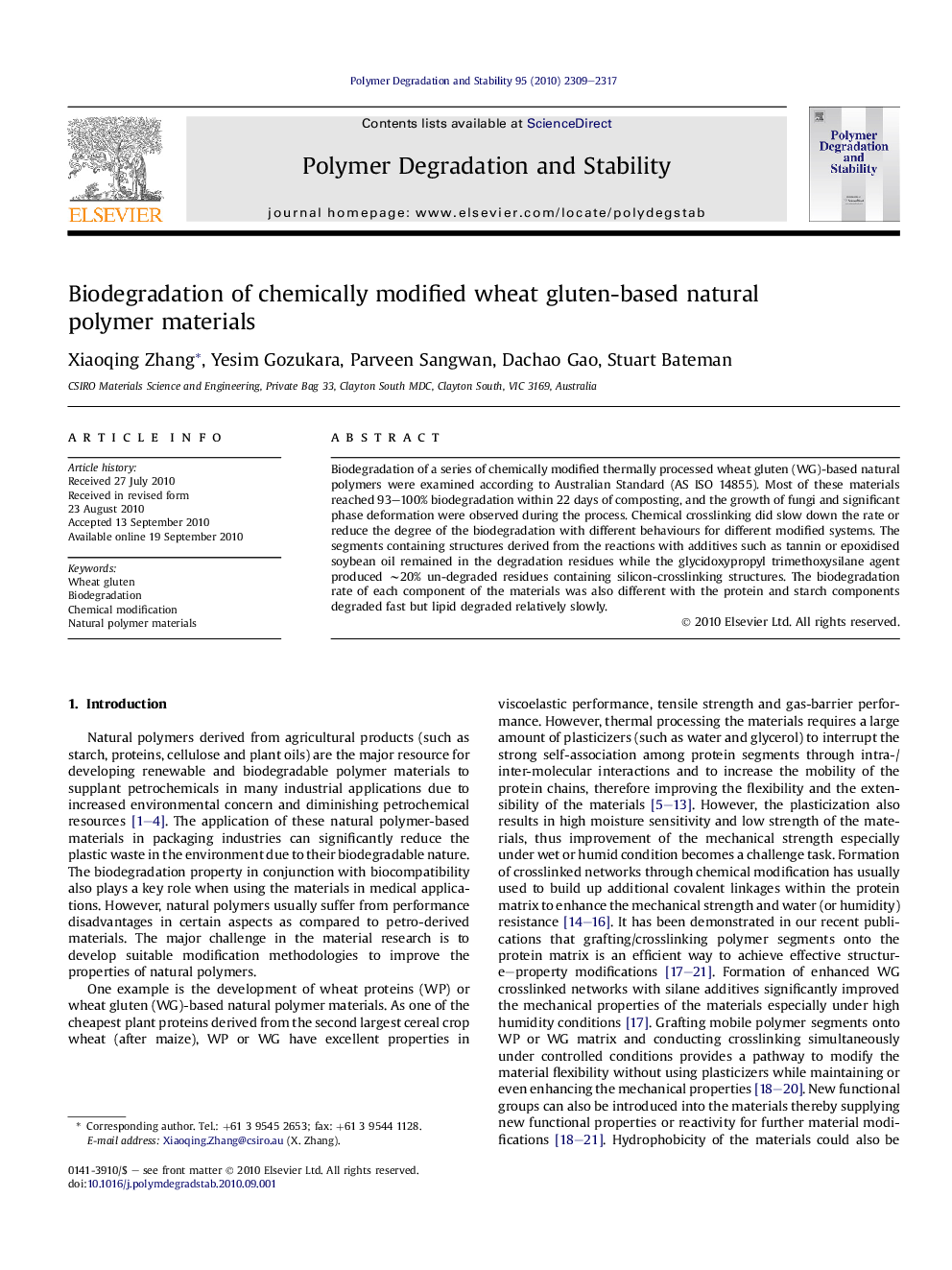| Article ID | Journal | Published Year | Pages | File Type |
|---|---|---|---|---|
| 5203174 | Polymer Degradation and Stability | 2010 | 9 Pages |
Biodegradation of a series of chemically modified thermally processed wheat gluten (WG)-based natural polymers were examined according to Australian Standard (AS ISO 14855). Most of these materials reached 93-100% biodegradation within 22 days of composting, and the growth of fungi and significant phase deformation were observed during the process. Chemical crosslinking did slow down the rate or reduce the degree of the biodegradation with different behaviours for different modified systems. The segments containing structures derived from the reactions with additives such as tannin or epoxidised soybean oil remained in the degradation residues while the glycidoxypropyl trimethoxysilane agent produced â¼20% un-degraded residues containing silicon-crosslinking structures. The biodegradation rate of each component of the materials was also different with the protein and starch components degraded fast but lipid degraded relatively slowly.
